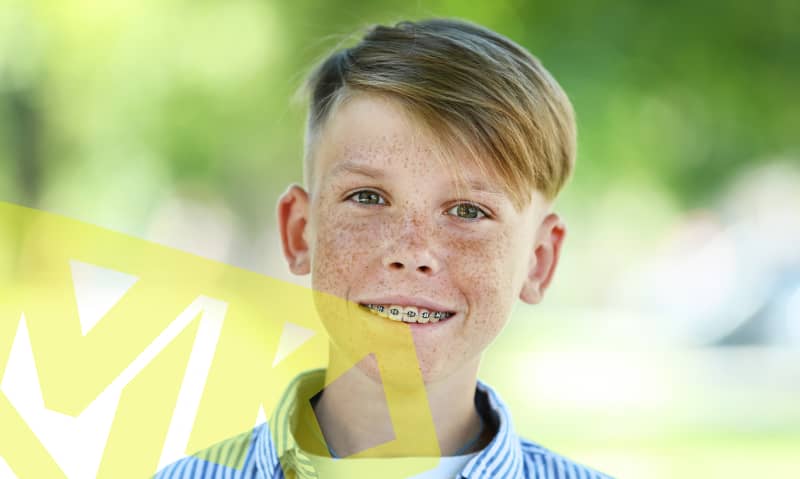5 Questions Your Kids Might Ask About Braces and How to Answer Them

So many questions, how do I answer them all?
More than likely, you knew it was coming, and your child’s dentist just announced that the time has come for braces. Your child is bound to have a lot of questions—whether you are prepared to answer them or not. To help in any way we can, we have compiled a list of five of the most common questions children tend to ask about braces. Along with the best ways to answer them, of course.
If you are unable to answer any of the questions they come up with, have them write them down for their dentist appointment. Explain to them that you don’t always know everything, but you know the right person to ask. This is a great opportunity to teach your child how to have open communication with their medical providers.
1. How do braces work?
Braces work by putting pressure on both the teeth and jaw. Over time, this moves them into the best position for each individual person. This can begin to work as early as four weeks into treatment, but it takes much longer for the process to be completed. More on that later.
This video goes into detail on how braces move the teeth. The orthodontist in the video has a model mouth within which he installs braces to demonstrate how everything shifts over time. If your child is a visual learner, this is a great way to show them what to expect.
If your child is a reader, there are many options for books that explain the entire process. Suzy’s Smile is an adorable story about a shark who gets braces. And, Brace Yourself is the story of an eight-year-old boy journaling about his experience getting braces.
2. Do I still need braces if I like how my teeth look?
Remind your child that braces aren’t just for changing the appearance of their teeth. Straight teeth are less likely to have plaque buildup. Plaque likes to hide in all of those nooks and crannies, even with brushing and flossing. All of that buildup can lead to cavities and tooth decay. This is one of the many reasons it is incredibly important to take time to keep your teeth happy, clean, and healthy. Getting braces can straighten them out and make it much easier for your child to keep their smile healthy and cavity-free.
If your child has speech difficulties due to their misalignments, even if they aren’t visible, braces can help solve this issue over time as well. As your child gets older, severe malocclusions or dental misalignments can even affect the way they eat and digest food.
3. Do braces hurt?
Braces don’t necessarily cause pain, but they can cause some discomfort. This tends to last about four days to a week after they are placed. Don’t worry! It’s temporary. The uncomfortable feeling is just from their mouth and teeth getting used to new pressure from the wires.
During the time it takes for your body to adjust, the discomfort can be managed by over-the-counter medications such as Ibuprofen and Tylenol. Another thing that will help during this adjustment period is eating soft foods to let your teeth rest just a little.
4. What if people tease me?
Over time, braces are becoming more and more common. This makes the chances of your child getting bullied for their new dental bling much lower. Even so, it does still happen.
Sometimes, the best thing you can do as a parent is to listen to your child if something like this happens. That way you can know the appropriate action to take—whether you need to go to the school yourself or direct your child to the appropriate school staff member.
Regardless, be sure your child knows who to talk to, whether it is a teacher or a parent. Make sure they know how to react if they are picked on and how to be proud of the work they are putting into improving their teeth.
5. How long will I need to wear them?
In the long run, it depends on exactly what needs to be done. Each smile is different, so each treatment plan is adjusted accordingly. On average, most people tend to wear their braces for 18 to 24 months. If the alignment isn’t quite as severe, the timeframe can go down to as little as six to 11 months.
Just a little extra…
If your child likes to learn the origins of things, you can direct them to the 8 Fascinating Stories of Braces from History. This article provides random facts and stories about braces, including how mummies even used their own version of braces to keep teeth in place.
Getting braces can be quite a big transition. Understandably, your child will have questions about them. Hopefully, this list helps you, as a parent, feel just a little more prepared to help them through any questions they may have.
As always, if you have any questions yourself, feel free to contact us. We are here for you and your family and want your child to feel confident with their smile.